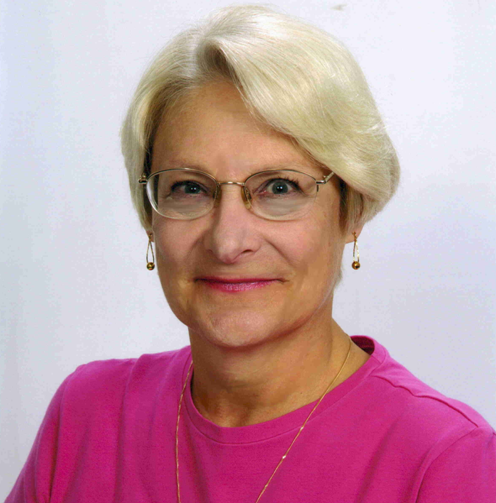Abuse of Persons with Dementia
Abuse of Persons with Dementia
By Carole Larkin
I am an avid reader of the American Society on Aging’s quarterly journal called “Generations”. The most recent journal focuses on the topic of elder abuse, something that seems to me to be the “elephant in the room”. Generally we are aware that it exists, but are loathe to talk about it. Today, I want to talk about it because it seems to me that our cognitively impaired elders are the most at risk to be abused and are probably the most victimized precisely because of their impairment. That is not to say that non- cognitively impaired elders are not victims, but more to note that they inherently have more tools to defend against abuse by being able to speak up against the abuser and act on their own behalf.
As “Generations” points out the term “elder abuse” is not well defined and can mean lots of different things. Aspects of elder abuse can include financial abuse, physical abuse, mental abuse, sexual abuse and neglect (including self neglect). Abuse can and does take place within the family, especially by immediate family members acting as caregivers for the person with dementia, but also by family members who are not in charge of day to day care (typically financial abuse). Abuse of all types can and does take place in institutions such as nursing homes, assisted livings and memory care communities by care staff, and is overlooked, ignored or even occasionally condoned by management. That is not to say that all institutions allow this to happen, but that some percentage do because of incompetency or something more sinister.
Why does this happen? Generations points out that the traditional answer has been “caregiver stress”. But recent research has discovered that while caregiver stress has accounted for some of the abuse, it really accounts for a minority of it. Caregiver stress far more often shows its ill effects on the caregivers mental and physical health rather than the cognitively impaired care recipient’s health, and we know that to be true, personally. Isn’t that right? What then are some of the reasons this abuse happens?
Research has shown that abuse in families can happen when the caregiver is dependent on the care recipient financially or even emotionally. It can and does happen when the family caregiver is mentally ill themselves, or are a substance abuser. It can happen because of dysfunctional relationships between the caregiver and the care receiver from long ago that are “gunnysacked” and acted on now. Feelings of anger and the need for revenge can go on for years (including anger at other family members not taking responsibility for care being misdirected at the cognitively ill person instead of the others). Also, let us not forget about the inherently “evil” family member, who just does it because they like to.
In institutions abuse happens because of poor staff selection meaning that appropriate screening isn’t done. Sometimes there just aren’t enough candidates who are willing or available to take the jobs (especially the jobs at the bottom of the payroll scale such as caregivers) and the facility must take who comes in the door or will be sited by governmental supervisory agencies for being understaffed. Sometimes owners of facilities don’t really care to make the effort to screen candidates, or more to the point; adequately supervise upper management’s efforts to screen staff.
So elder abuse is a personal issue, a family issue and a institutional issue. It also is a societal issue. We as a society (and I’m talking about the United States, because that’s where I live) turn our heads the other way and pretend that it doesn’t exist. Finally, as part of the Affordable Care Act, the Elder Justice Act was passed by both houses of Congress and signed into law by the President. For a summary of the contents of this act see the following link: http://www.elderjusticecoalition.com/docs/EJA-Summary-772010.pdf. Guess what? This act has never been funded! Wow! Unbelievable! Shameful! I think that we need to stand and say “We’ll not look the other way, but instead speak up for our cognitively impaired elders who can’t speak for or defend themselves.”
 Carole Larkin MA, CMC, CAEd, DCP, QDCS, EICS is an expert in Alzheimer’s and related Dementias care. She has a Master’s of Applied Gerontology from the University of North Texas, is a Certified Alzheimer’s Educator, is a Dementia Care Practitioner, is a Qualified Dementia Care Specialist, and an Excellence in Care Specialist at the Alzheimer’s Foundation of America, as well as a Certified Trainer/Facilitator of the groundbreaking dementia care training tool, the Virtual Dementia Tour Experience She is a Certified Geriatric Care Manager who specializes in helping families with Alzheimer’s and related dementias issues. She consults with families telephonically nationwide on problems related to the Dementias. Her company, ThirdAge Services LLC, is located in Dallas, TX, and her website is www.thirdageservices.com.
Carole Larkin MA, CMC, CAEd, DCP, QDCS, EICS is an expert in Alzheimer’s and related Dementias care. She has a Master’s of Applied Gerontology from the University of North Texas, is a Certified Alzheimer’s Educator, is a Dementia Care Practitioner, is a Qualified Dementia Care Specialist, and an Excellence in Care Specialist at the Alzheimer’s Foundation of America, as well as a Certified Trainer/Facilitator of the groundbreaking dementia care training tool, the Virtual Dementia Tour Experience She is a Certified Geriatric Care Manager who specializes in helping families with Alzheimer’s and related dementias issues. She consults with families telephonically nationwide on problems related to the Dementias. Her company, ThirdAge Services LLC, is located in Dallas, TX, and her website is www.thirdageservices.com.



Reblogged this on lava kafle kathmandu nepal.
thanks for reblogging